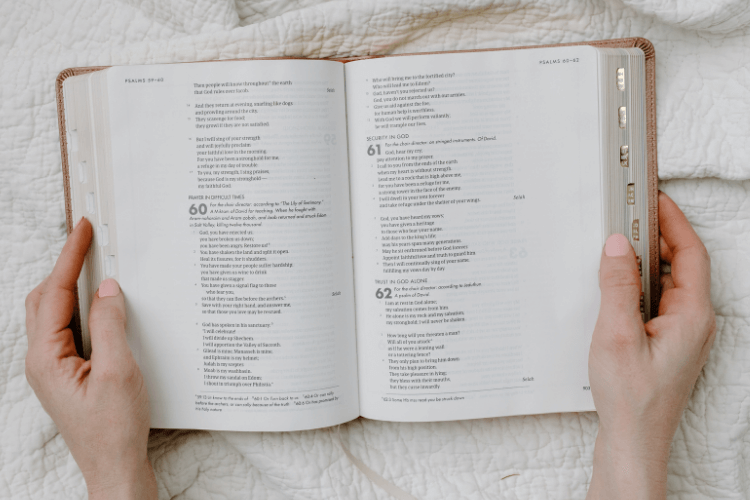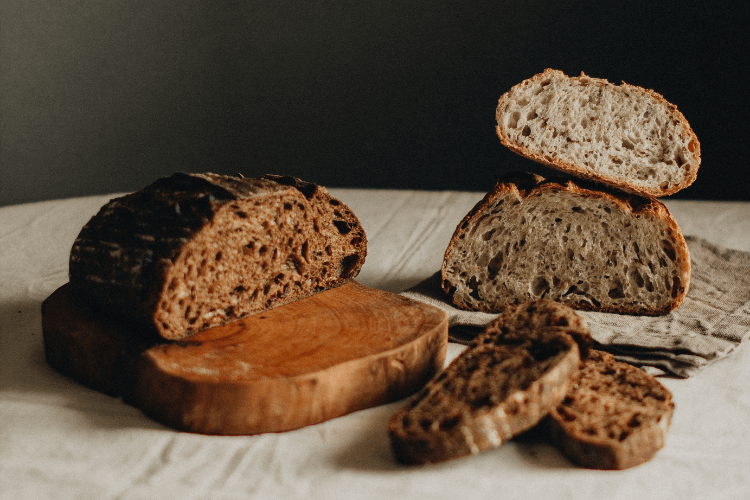
Does Fasting and Prayer Really Work?
 The Bible is full of examples of people fasting and praying to God. In the Old Testament, we see Moses fasting for 40 days on Mount Sinai while receiving the Ten Commandments (Exodus 34:28). In the New Testament, we see Jesus fast for 40 days in the wilderness before He began His public ministry (Luke 4:1-2). The apostle Paul also mentions that he fasted and prayed (see Acts 9:9, 14:23, 20:36, 27:33-34). So if all of these people in the Bible fasted and prayed, it must work, right?
The Bible is full of examples of people fasting and praying to God. In the Old Testament, we see Moses fasting for 40 days on Mount Sinai while receiving the Ten Commandments (Exodus 34:28). In the New Testament, we see Jesus fast for 40 days in the wilderness before He began His public ministry (Luke 4:1-2). The apostle Paul also mentions that he fasted and prayed (see Acts 9:9, 14:23, 20:36, 27:33-34). So if all of these people in the Bible fasted and prayed, it must work, right?
Well, the answer isn't quite so simple. While there are many examples of fasting and prayer in the Bible, there is no guarantee that if you fast and pray, God will do what you want Him to do. Remember, we must rest in God's Divine Will, not ours. "Jesus, I Trust in You."
Realize that fasting and praying are not methods to get our own way or to manipulate God into doing what we want. Instead, it is a time to set aside our desires and focus on seeking God's will for our lives. It is a time to humble ourselves before God and surrender our plans, worries, concerns, and agendas to Him. It is a time to discern the will of God in our lives and gain peace knowing God is in control.
In this regard, fasting and prayer can definitely work. Throughout Scripture, we see examples of people who were changed by their time spent fasting and praying. But ultimately, it is up to God how He chooses to answer our prayers or grant our requests. We need to be careful not to put our trust in the act of fasting and prayer but instead in God, who hears our prayers and knows our inner hearts. After all, God knows what is best for us and will guide us in our lives if we surrender and "Trust in Him."
Prayer is a vital part of the Christian life, but we need to remember that God ultimately knows what is best for each of us at any given time. "Thy will be done..."
How to eat when fasting and praying?
When fasting and praying, you may wonder how to go about your everyday eating habits. After all, you are setting aside a specific time to focus on your relationship with God, and food is such a big part of our daily lives.
There are a few different ways to approach eating while fasting and praying. First, you could choose to skip meals altogether during your fast. This means you would only consume bread and water for the duration of your fast. Or, you could choose to eat one meal a day during your fast. This meal would be smaller than usual, and you would likely take some time before eating to pray and thank God for His provision.
you would only consume bread and water for the duration of your fast. Or, you could choose to eat one meal a day during your fast. This meal would be smaller than usual, and you would likely take some time before eating to pray and thank God for His provision.
Another option is to eat normally during the day but abstain from food starting at a set time such as before going to bed until noon the following day or for a specific number of hours each day, say from sunrise to sunset.
Whichever approach you choose, be sure to listen to your body and give it the nourishment it needs. Don't push yourself beyond your limits, and drink plenty of water. When in doubt, consult with a medical professional before undertaking a fast. The sick or the elderly should abstain from fasting, as God does not want harm to come to us. Instead, one could give up a favored item or task such as cookies and cake or watching television. It is the sacrifice of the reliance on material things of this world instead of on God's divine providence; Our desire to be more intimate with God is the goal.
Why Is Prayer Important When Fasting?
Prayer is essential when fasting because it helps to align our hearts and minds with God's will. It is a time to set aside our own desires and focus on seeking God's will for our lives. When we pray, we surrender our plans and agendas to God and humble ourselves before Him. This allows us to discern the will of God in our lives.
Fasting without prayer can easily become an empty ritual. We need to be careful not to put our trust in the act of fasting, but rather in the One who hears our prayers and knows our hearts. Prayer is a vital part of the Christian life, but we need to remember that it is God who ultimately decides how to answer our prayers. We should never put our hope in fasting, but rather in the One who hears us and knows our hearts.
Communication and building our relationship to trust in God and in His infinite wisdom is important to remember. As with any relationship, communication is key to developing a more intimate understanding of others. God loves each of us, not because we deserve it, but because He Desires it. It is well known that no one truly understands the depth of God's love for God is love itself.
How to Pray When Fasting?
When you are fasting, it is important to keep your mind focused on God. This can be difficult at times, especially when your stomach is growling or you're feeling lightheaded. However, there are a few things you can do to help keep your mind focused on God.
- First, set aside a specific time each day to pray. This will help to structure your day and ensure that you don't forget to pray.
- Second, choose a specific place to pray each day. This could be in your room, in your backyard, or even at a local park. Having a specific place where you pray will help to create a sense of connection between you and God. If possible, create an environment that allows you a meditative state of communication with God.
- Finally, don't be afraid to ask others to pray with you. This could be a family member, friend, or even a prayer partner. Having someone else to pray with will help to keep you accountable and focused on your prayer life. Always remember; "Where two or more are gathered, I'll be there."
Prayer combined with fasting is a vital part of the Christian life. God never said "IF" you fast, Jesus said, "WHEN" you fast. Many great things may be accomplished through prayer and fasting. Always remember, this should become a weekly occurrence, and is highly recommended to fast on Wednesdays and Fridays. Our lady, mother Mary, who is appearing in Medjugorje recommends fasting on Wednesday and Fridays. The reasons for this are clear. -- More on this later. :-)